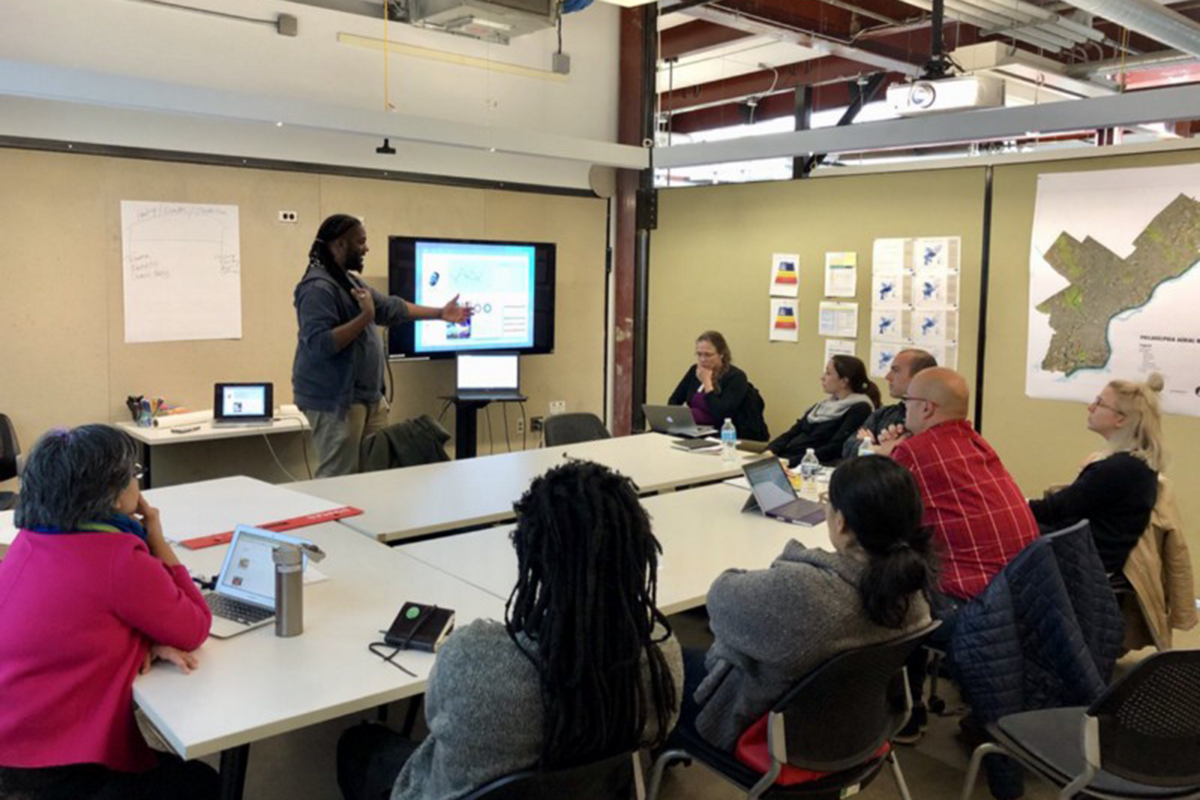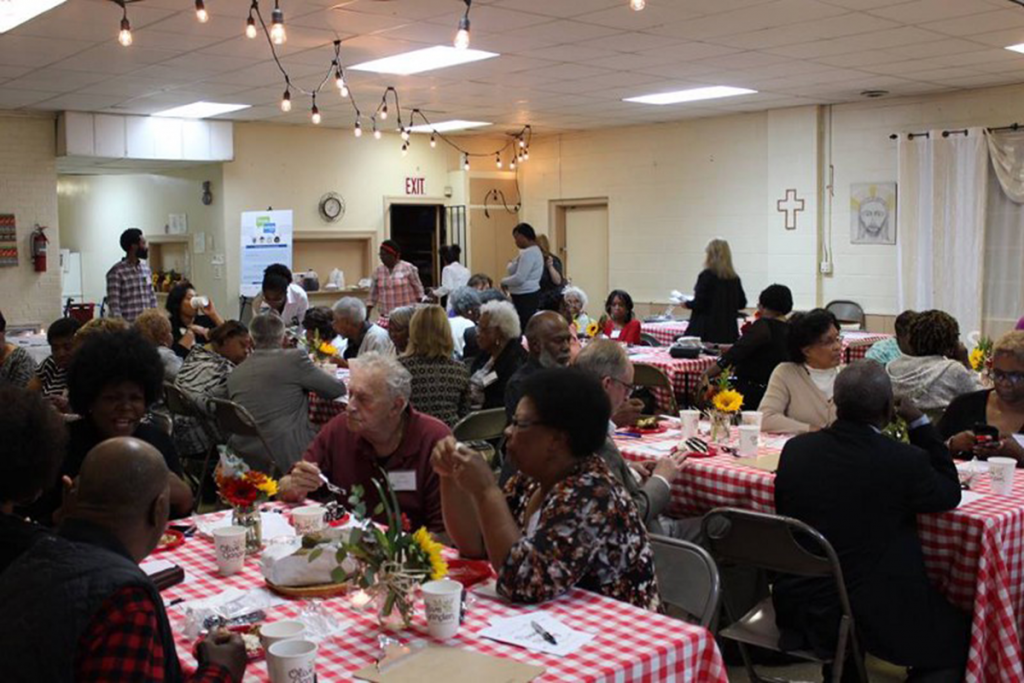
12 Jun Meet the K880 Emerging City Champions 2017: Michael and Lorna
It’s been almost a year since these urban innovators have launched projects to make their cities more engaged, safe, healthy and fun. Find out who they are, what they’ve created and what they’ve learned.
by Emma Jones, Jonathan von Ofenheim
Michael O’Bryan
Philadelphia, Pennsylvania
Meet the Champ: Michael O’Bryan works to make sure young people from diverse backgrounds have voices in defining the future of Philadelphia. He is the Senior Manager of Youth Programs at the Village of Arts and Humanities, an organization dedicated to arts-based, community development, connecting youth to potential employment in the creative economy.
Michael’s innovation story: Michael’s latest project is focused on rethinking Philadelphia’s workforce through the lens of behavioural science. What does that mean? He is aiming to give young people and their prospective employers the opportunity to learn from each other and, together, shape the future of work environments that allow all employees to thrive.
Michael is hosting a series of focus groups which will explore themes of “inclusive growth.” Broadly, Michael will ask both youth and employers questions including, “What is economic well-being?” and “How do we create a sense of healthy and joyful livelihood?”
He will speak to youth from diverse backgrounds, he says, including “migrants, young people who experience housing insecurity, folks that have experience with the justice system, folks that have experience of foster care, living in neighbourhoods that have been severely impacted by the poverty epidemic, and also folks going through the journey of re-entry post-incarceration.”
The focus groups will be doing what Michael calls “positive problem solving,” and will culminate in new data points, showcasing youth and employer perspectives on the future of inclusive work. Together and with artists, the group will put on a play to communicate their findings.
Why a play? “Art has an uncanny way of speaking straight to the emotional factories of the body and the mind and the psyche,” says Michael.
“When we’re talking about cultural ideas, people can set each other off real quick. So you can present all the data you want, and people will go, ‘naw.’ So it’s like, are there ways to take data, tell stories and speak to the emotional core of an individual, and try as much as we can to bypass these cultural defences that allow us to otherize?”
Lorna Allen
Charlotte, North Carolina

Senior citizens mingle at an event hosted by The Social Senior Project. (Submitted by Lorna Allen)
Meet the Champ: A resident of the Belmont neighbourhood in Charlotte, North Carolina, Lorna Allen serves on the Belmont Community Association Board as a member-at-large and co-chair of the land use committee. She’s passionate about serving and engaging her community.
“How might we better serve the senior citizens in our community and connect them back to the community?” she asks. She’s finding some answers too.
Lorna’s innovation story: Lorna’s innovation, “The Social Senior Project”, aims to provide a link between low-income seniors and the community in which they live.
So how do you get senior citizens to come out and socialize? “It’s tricky,” says Lorna. “I can’t set up an Eventbrite and expect people to show up.”
Facebook? Nope. The Next Door app? Right out. “We had to use conventional techniques,” says Lorna: hand-delivered flyers and newsletters, and word of mouth.
Lorna’s first event, held in a church hall, featured a D.J., a jazz ensemble and a two-course meal. A local Girl Scout troop filled in as servers for the evening.
Over 40 seniors showed up. “They came, they ate, they dined,” says Lorna. And each attendee was sent home with a telephone tree — to encourage “conventional” social networking.
Through conversation at the event, Lorna learned of some pressing issues that are important to the senior community. The input has inspired ideas for future events, including a financial literacy workshop. But most of all, the seniors want more opportunities to interact.
Most rewarding for Lorna is seeing old friends reconnect. She was showing one woman to her seat for dinner when “she just walked right past me,” says Lorna, “arms wide open, and just grabbed this other woman, and they just hugged and prayed and cried and laughed.”
“I was like, ‘What’s going on, ladies?’”
“And she was like, ‘I haven’t seen her in probably 15 years,’” says Lorna. Their kids had gone to school together but had grown up and moved away. They said they used to see each other regularly when they lived just around the block from one other.
“Where do you live now?” Lorna asked.
“Same location,” says Allen — just around the block.



